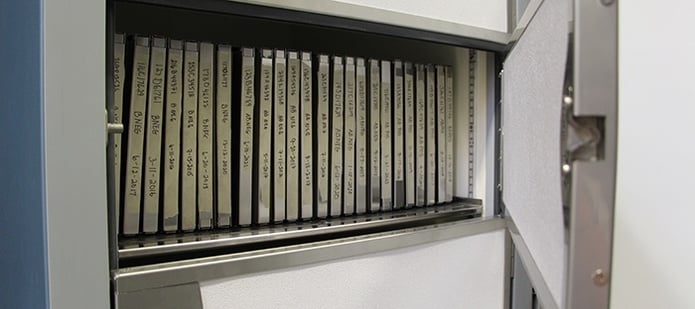
Blood centers are responsible for the storage and management of rare red blood cells (RBCs). AABB Standards state that rare RBCs should be stored below -65C for up to 10 years. These rare units may even be kept indefinitely due to their scarcity and value. Protecting rare blood from cell damage and maintaining viability throughout its lifetime is critical to those patients who may need to be transfused with this precious, life-saving product.
There are several very important points to consider when selecting an Ultra-Low freezer and accessories for freezing and storing rare blood. The first is the reliability of the freezer. Considering the long-term nature of the storage period, a key factor is protecting rare RBCs from temperature excursions caused by refrigeration system issues. In addition, minimizing the number of times the units have to be moved because of service calls (or even defrost events) helps prevent exposure to out-of-range temperatures and the risk of damage due to unnecessary handling.
Minimizing handling can also be accomplished when rare blood canisters are accessible and well organized inside the freezer, reducing the need to shift canisters while sorting through stacks. Vertical storage racks and canisters designed for this purpose help maximize storage space while limiting the amount of handling a unit must withstand throughout its lifespan. This also helps to mitigate the risk of damage.
Another consideration is the method used to freeze the rare blood cells. One of the methods described in the AABB Technical Manual (18th Edition, Method 6-6) is the Meryman Method. This method requires that glycerolized RBCs be placed in a canister and frozen to -65C or below in a flat position. Specially designed, horizontal racks can assist with the flat freezing method.
Selecting the right solution for storing your rare red blood cells means that this precious resource will be safeguarded from adverse conditions. Learning what to consider in an ultra-low freezer and rare blood accessories will help ensure that you ultimately have a secure storage environment that also minimizes handling risks. Download our Rare Blood Storage eBook to learn more.
References
Standards for Blood Banks and Transfusion Services, AABB, 30th Edition
Technical Manual, AABB, 18th Edition




